 |
|
The
media always needs to create Nintendo drama, and even amongst struggles
for the highly-praised PlayStation 4 and Xbox One to actually get games,
the Wii U can't catch a break. Even with the success of Mario Kart
8 and Super Smash Bros. for Wii U, it still can't
catch a break! Of notable big media bullshit brainwashing is some asshole
who supposedly worked at Nintendo. This idiot claims that the Wii U's
third-party support is the direct result of first-party intimidation;
that Nintendo's own masterful craft has discouraged third-parties. Essentially,
that Nintendo does so great with their own games that instead of trying
to top them, developers see a mere concept of their own as instantly
inferior, throw their arms up, and give up. He echoes a flawed, familiar
sentiment deeply engrained into the developer psyche: that their work
will live in the shadow of Nintendo's, no matter the quality. The industry's
lukewarm support for Nintendo isn't new, and goes all the way back to
the days of the Nintendo 64.
|

|
|
|
|
However, it's stupid to think that third party developers naturally just stay away from Nintendo because their first-party titles are "too good," or that Nintendo machine owners only buy first party games. It's a dumb excuse for lazy developers and short-sighted thinking. It's a scapegoat and a cop-out. A convenient excuse to box-out any hardware maker that isn't simultaneously invested in television, music, and/or computers. Just like all the other media-generated bullshit, the proof to this lies in history. None of these new-school idiots were in the old-school, so none of them know what it was like before it was a developing trend to maroon Nintendo hardware. How old were these guys when all of this third party bullshit started? When developers found every excuse they could to back out of Nintendo 64 development contracts? Were they even old enough to know what was going on? Once again, history proves media lackeys wrong in their third party crusades against Nintendo, and here's why... |
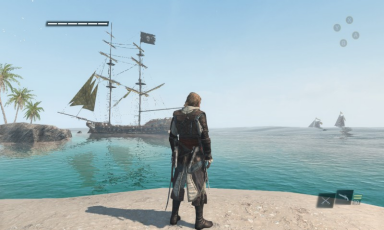 |
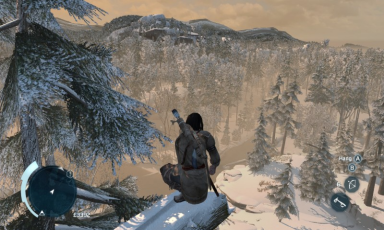 |
| The NES and SNES prove this. For the NES, look at how big Mario, Zelda, and other Nintendo IPs were; did they scare third party developers into making those games for the Atari 2600, instead? No. Even if you don't count that, take a look at the SNES. Look at all the masterpieces on that machine; many made by Nintendo, many made by third-party developers. There was a great balance on the SNES between both first-party and third-party quality. There wasn't a huge disparity between them, caused by ignorance and widespread media influence. In other words, developers didn't use media created cop-outs as an excuse to pass on innovation and/or fitting products. To put it even more simply, developers just went their own way and developed great games on the SNES no matter what Nintendo was doing. Capcom didn't use the runaway success of Nintendo platformers Super Mario World or Super Mario All-Stars as a scapegoat to scrap development of its Mega Man X platformer series. RPG fans all over the world hail Squaresoft titles like Final Fantasy II, Final Fantasy III/Final Fantasy IV, Chrono Trigger, and Secret of Mana as being masterpieces in their genre. Had there been fear of competing with Nintendo's own Zelda: A Link to the Past back then, Squaresoft would have never made those titles that are considered to be masterpieces today. Back then, if third-party companies used the Nintendo first-party excuse, wouldn't we have seen more development on the machines of companies with less in-house talent (Turbo Grafx 16, for example)? |
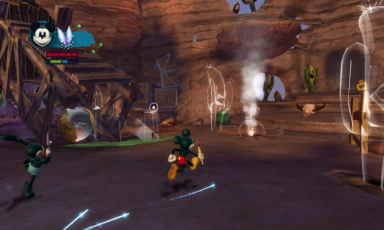 |
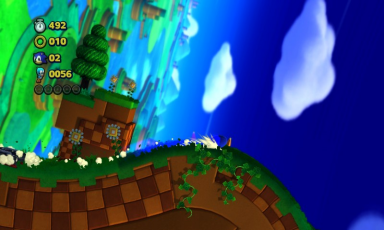 |
| The whole "Nintendo first-party" argument has never held water, though, especially when you look at successful third party efforts on Nintendo systems. Third party games sell on Nintendo machines, and the proof is easily seen at local independent game stores, on eBay, or Amazon. Funny how big media tries to brainwash us into thinking that owners of Nintendo machines don't buy third-party games, yet third-party NES, SNES, N64, GBA, GC, NDS, and Wii games consistently keep their value. Obviously, there is demand for third-party games on Nintendo's machines. If there wasn't, third-party titles would be dirt-cheap! MegaMan games on NES are still gaining value, and the MegaMan X games on SNES go for over $300.00 - $400.00 each! Konami's classic vampire bloodletting series, Castlevania, continues to be a gold mine on Nintendo machines as Dracula X (XX) on the SNES climbs into the $600.00 range, and Castlevania - Legacy of Darkness on the N64 maintains a $130.00 - $400.00 range, with each of the three GBA titles easily up to $200.00 each. Both of Konami's N64 Mystical Ninja games go for about $50.00 used and shoot up to $300.00 complete. One of my personal Konami favorites, Sunset Riders, goes for over $75.00 loose and $215.00 complete. Squaresoft's Chrono Trigger goes for about $70.00 loose and over $275.00 complete. The incredible Resident Evil 2 on the N64 has fluctuated, but has stayed in the $200.00 range, and is still the only game on the hardware to use full-motion video. Atlus masterpiece Ogre Battle 64 was arguably the best third party RPG on the N64, and its used $50.00 range/mint $300.00 range price points reflect that. Treasure's Bangaio on N64 still goes for well over $100.00 even used, with the GC Ikaruga at around $50.00 used and $100.00 new. Quite possibly the most valuable third party game on the GC is Capcom's exclusive Gotcha Force, which weighs in at a shocking $85.00 for the disc alone, $200.00 with the box and manual, and at a staggering $350.00 new. SNK's Metal Slug Advance still goes for $30.00 - $70.00! The Japan-only shooter Ketsui Death Label on the NDS goes for the astronimical price of $70.00 used and $214.00 new. Even as new as the Wii is, Xenoblade Chronicles went into the $100.00 range as soon as it was released, and others like The Last Story will surely follow suit. Of course, there are more examples of valuable third-party games on Nintendo machines, but the point here is that there is always third-party money to be made by developing on Nintendo hardware. |
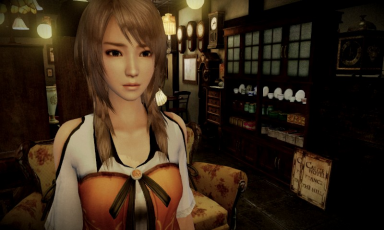 |
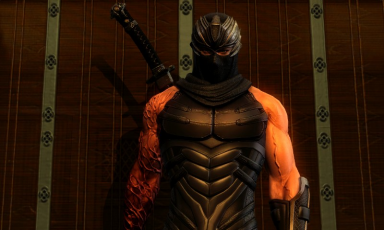 |
| As a long time owner of Nintendo's machines, I can say that the gems I always found weren't first-party titles - they were third-party titles. Not to say that Nintendo doesn't make good games, but I've always bought more third-party titles on their hardware, and there are many others like me out there who did the same. If that wasn't true, then why is there still such high demand? Why haven't the prices went down? The answer lies in those two questions. Supply and demand. If there wasn't such strong demand for those third-party titles, their prices wouldn't be as high as they are. If owners of Nintendo machines didn't buy third-party titles, then why are they still buying them now for previous Nintendo machines? If Wii U owners specifically are being targeted with this accusation, then why are they still buying titles from previous Nintendo systems through the Wii U eShop? Developers are just being lazy and unfair as they shovel ports or lame products onto Nintendo's machines, yet blame Nintendo for low sales. How about trying to do ports of titles that will actually make money? Call of Duty: Advanced Warfare could make money on the Wii U, and even on the PlayStation 4 and Xbox One it's nothing the Wii U can't do. Better yet, stop back-porting titles out of Wii U exclusivity (Ninja Gaiden 3: Razor's Edge, Rayman Legends)! Or, even better, how about developing completely new titles that are actually worth playing? If Platinum can do it with Wonderful 101 and Bayonetta 2, then why can't other, bigger developers? Developers continuing to "choose not to invest in making high quality products for the platform" doesn't make anything better. It doesn't break the cycle of first-party fear that big media has engrained into the minds of companies. |
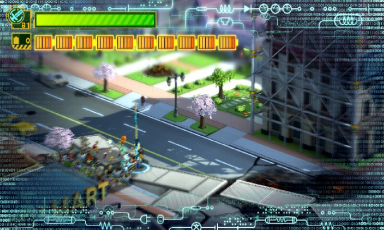 |
 |
| The whole idea of first-party fear was built around the momentum of longstanding media-created sentiment that has been hard for Nintendo to break (even with the immense success of the Wii). Nintendo hasn't changed; they've always had the same talented designers, and they've always utilized their machines to full capacity. It's the industry that has changed, and we have big media to thank for that. Nintendo first-party fear propaganda began and was installed into the psyche of developers with the birth of the Nintendo 64, has been consistently kept alive through the birth and death of each subsequent Nintendo machine, and is still kept alive even today. Physical media did exist back in the 16-Bit era, but its influence didn't really seem to take hold and dictate development until after that with the 32-Bit and 64-Bit machines. Solid proof of this was seen when Squaresoft stabbed Nintendo in the back by pulling all Nintendo 64 development, citing reasons that (at the time) strongly parallelled big media sentiment for the hardware. One of the reasons for their breach of contract was due to the cost of cartridges, yet not long after that Squaresoft made several titles for the Wonderswan Color (a cartridge-based machine). Why any developer would choose the WonderSwan Color over the Nintendo 64 is beyond me. There's no doubt that popular media sentiment for Nintendo influenced such hypocritical third-party decisions. |
 |
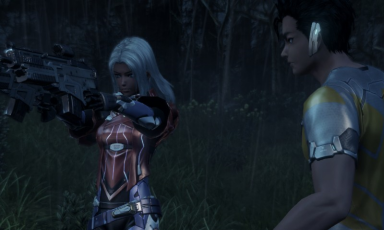 |
|
|
|
Fast forward to the present, where even the Xbox One is showing early signs of discontent when it comes to third party support. Compared to how much support the Xbox 360 got in the last generation, it's easy to see the concern. Sure, it got Dead Rising 3, but the Wii U still has it beat when initial third-party support is compared. Add to that overlapping with PS4 and XBO titles (Assassin's Creed IV, Call of Duty Ghosts, Watch Dogs), and suddenly the Wii U library doesn't seem so lacking, after all. It was only after big media outlets had put bullshit into the heads of developers that third-party support started to wane. The point of all of this? The point of what history proves? That no matter what Nintendo does, they have been set up for failure by an industry that has long discouraged third-party support for them. |
|
||||
| BAD'S COMMENTARY PAGE 2015. All rights reserved. |